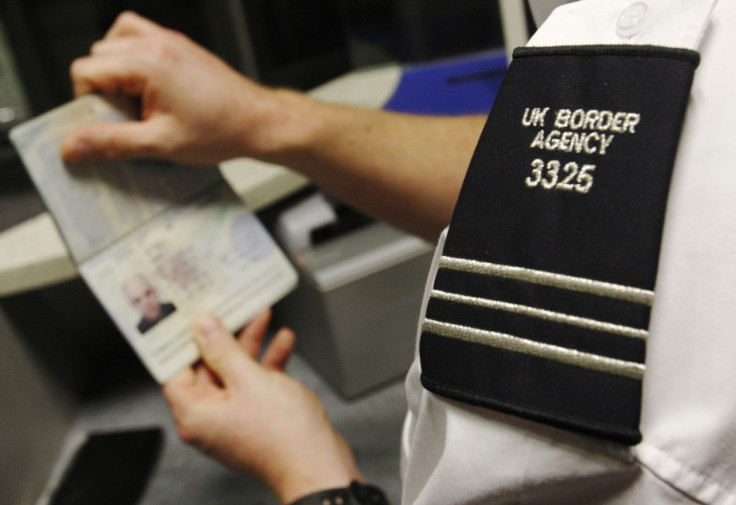Debunking Myths About EU Immigration to the UK

Britain has entered another mouth-frothing "debate" around immigration, with old hostilities brought back to the boil.
The debate's re-ignition was sparked by the impending 2014 lifting of EU restrictions on migration from member states Bulgaria and Romania, with polls suggesting that some will choose to come to Britain.
IBTimes UK explores some of the myths surrounding the fiery topic.
"Almost a Third of the Population Are Immigrants"
A 2011 survey of British opinion on immigration, carried out by Transatlantic Trends, asked what level of foreign born people the respondent thought was in the population.
The average reply was 31.8%.
In fact, the real figure is less than half of this.
Census data from the Office of National Statistics (ONS) shows 7.5 million foreign-born people in England and Wales - just 13% of the population.
"Most Immigration Comes From the EU"
Immigration headlines tend to be dominated by the EU, particularly in the popular press, fuelling anger and ignorance over the perceived peril of free labour movement within the single market.
Shivers run down spines whenever a new member state enters from the eastern or central areas of Europe.
Yet, official statistics show that it is immigration from outside the EU, which is much more tightly controlled, that makes up the bigger number of people entering the country.
In the year to June 2012, 157,000 migrants from the EU entered the UK.
During the same period, 282,000 non-EU migrants arrived on Britain's shores.
Both of these figures were actually down on the year before, at 175,000 and 327,000 respectively in 2011.
"Immigrants Take More Out Than They Put In"
Most studies find that immigrants to the UK make a net positive fiscal contribution to the economy. Essentially, this means they pay more into the system in tax, than they take out again, through services and so on.
However, the University of Oxford's Migration Observatory, a leading authority on the subject, says that there is still a lack of data in this area.
It is also a complex issue.
For example, some migrants may use publicly-funded translation services, while others don't. Migration in some areas may drive up rents and house prices, forcing UK-born people into social housing.
Or some migrants work as nannies, which not only means they contribute to the tax system but they free up a parent to work and pay-in when they otherwise couldn't.
"The evidence suggests that in the four fiscal years following EU enlargement in 2004, migrants from the A8 countries made a positive contribution to public finance in the UK," said a Migration Observatory briefing note on the impact of immigration from some of the EU countries that most concerns the public - the A8 - such as Poland and Lithuania.
"While A8 migrants work mostly in lower wage occupations, they tend to have high labour force participation rates and employment rates."
A study by the Institute of Fiscal Studies (IFS) concluded that the A8 migrants had a positive impact on the UK economy. It even suggested they had driven up wages.
"All [the evidence] paints a very positive picture of A8 immigration to the UK - one of highly educated, young people, entering the UK predominantly to work, with subsequent positive net contributions to the tax system," said the IFS study, called Assessing the Fiscal Costs and Benefits of A8 Migration to the UK.
"The analysis also suggests that the labour market situation of immigrants substantially improves with time in the UK, in terms of both wages and labour force attachment."
While indications are that migrants are net fiscal contributors, there is not enough comprehensive data to draw any solid and broad conclusions on immigration either way.
"We Don't Need Immigration"
On the contrary, we need migrants to plug skills gaps in our economy.
We do not have a domestic workforce that can support all of our wants and needs.
Many of the skills we need, such as nursing, must be imported through immigration from the EU and beyond.
What's more, we need taxation from migrant workers to help pay the public service bills, such as pensions, NHS, education, infrastructure and so on.
We can have a much better understanding of others from across the world if we live with them here too. People feel comfortable coming here to do business - or set one up.
As well as the economic needs there are cultural ones too. We live in a globalised time. The UK benefits from having such a culturally diverse nation. London is one of the worldliest cities on the planet.
From food, to language, to beliefs and more, Britons can enjoy the fruits of almost every culture in all the world, but on its own shores.
The last thing we should do is tighten immigration controls even more and put up a bigger "not welcome" sign by intensifying anti-immigrant rhetoric.
Related articles:
EU Referendum: London Businesses back UK Membership as Immigration Benefits Economy
Peter Hitchens on the EU, Immigration, Drugs and Press Freedom
© Copyright IBTimes 2025. All rights reserved.






















